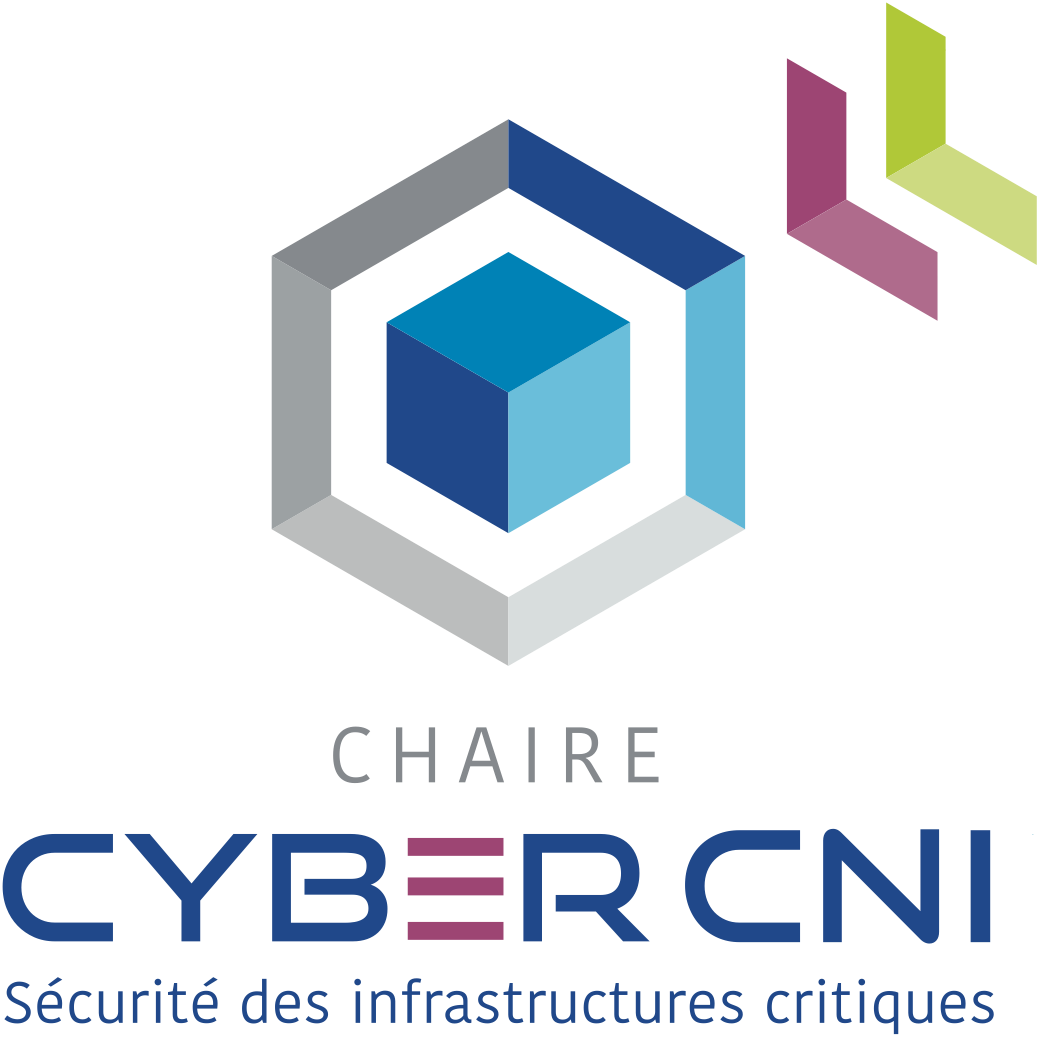We cordially invite you to meet us at the Forum International de la Cybersécurité in Lille on 5.4.2023 16h30, area of the Masterclasses and Research Presentations of the CNRS, for our session with our chairholder Marc-Oliver Pahl on “The Metaverse – Risk or Chance: a Cybersecurity Perspective”.
On Oct 17, 2022, our PhD Anthony DAVID presented her latest results regarding “Virtual Reality for cybersecurity data vizualisation“.
https://youtu.be/YsywPruG4BI
On Oct 17, 2022, our PhD Awaleh HOUSSEIN MERANEH presented her latest results regarding “Automated Learning for handling Cyber-Physical Attacks“.
https://youtu.be/t9fJxEJbgZE
On Oct 17, 2022, our PhD Léo LAVAUR presented her latest results regarding “Federated Approaches for Defending Cyber-Attacks“.
https://youtu.be/BwgZJKqKG3U
The chaire Cybersecurity for Critical Networked Infrastructures (https://cyberCNI.fr) offers an excellent opportunity for companies to do research in collaboration with academic partners. As part of the CyberCNI Chair session at the ECW 2022, Marc-Oliver PAHL, our chairholder of the Cyber CNI Chair explains what the benefits of becoming a partner of the chaire include: “How to join the club? 8 Reasons for becoming a partner of the chair CyberCNI”.
On Oct 17, 2022, our PhD Zeinab Ibrahim Rahal presented her latest results regarding “Digital twins for cybersecurity“.
https://youtu.be/PTtkCDYDxcw
As part of the CyberCNI Chair session at the ECW 2022, Etienne DECOSSIN, Responsable du programme Tech de l’information – Simulation avancée, EDF R&D, & Youssef LAAROUCHI, Cybersecurity Project Manager, EDF, speak about “Energy and CyberCNI – the role of the collaboration for EDF”
As part of the CyberCNI Chair session at the ECW 2022, the Head of Defence & Strategic Programmes France of Airbus, Nicolas Razy, talked about “The role of academic partnerships within Airbus Defence and Space Cybersecurity at the example of the chair CyberCNI”.
On 17, 2022, our PhD Luis Fernando de Oliveira Soeiro presented her latest results regarding “CodeLedger : tracking the provenance of critical open source components“
https://youtu.be/7I3lB1egODw
On Oct 17, 2022, our postdoc Loïc Miller presented her latest results regarding “sécurité collaborative“:
https://youtu.be/LABJG0Njz1U

![[FIC2023] “The Metaverse – Risk or Chance: A Cybersecurity Perspective,” 5.4.2023, 16h30, CNRS area](https://cybercni.fr/wp-content/uploads/2023/02/813c37d5-789f-4060-9c0a-ff4d3ecfc17d.jpg)
![[RU2/22] Anthony DAVID : Virtual Reality for cybersecurity data vizualisation](https://cybercni.fr/wp-content/uploads/2022/11/RU222-Anthony-DAVID-PhD-IMT-Atlantique-1024x576.jpg)
![[RU2/22] Awaleh HOUSSEIN MERANEH : Automated Learning for handling Cyber-Physical Attacks](https://cybercni.fr/wp-content/uploads/2022/11/RU222-Awaleh-HOUSSEIN-PhD-IMT-Atlantique-1024x576.jpg)
![[RU2/22] Léo LAVAUR – Federated Approaches for Defending Cyber-Attacks](https://cybercni.fr/wp-content/uploads/2022/11/RU222-Lo-LAVAUR-PhD-IMT-Atlantique-1024x576.jpg)
![[ECW2022] Marc-Oliver PAHL, chairholder of the Cyber CNI Chair, speaks about “How to join the club? 8 Reasons for becoming a partner of the chair CyberCNI”](https://cybercni.fr/wp-content/uploads/2022/11/ECW2022-Marc-Oliver-Pahl-The-chair-Cybersecurity-for-Critical-Networked-Infrastructures-1024x576.jpg)
![[RU2/22] Zeinab Ibrahim RAHAL – Digital twins for cybersecurity](https://cybercni.fr/wp-content/uploads/2022/11/RU222-Zeinab-RAHAL-PhD-Tlcom-SudParis-1024x576.jpg)
![[ECW2022] Etienne DECOSSIN, Responsable du programme Tech de l’information – Simulation avancée, EDF R&D, & Youssef LAAROUCHI, Cybersecurity Project Manager, EDF, speak about “Energy and CyberCNI – the role of the collaboration for EDF”](https://cybercni.fr/wp-content/uploads/2022/11/ECW2022-EDF-RD-1024x576.jpg)
![[ECW2022] Nicolas RAZY, Head of Defence and Strategic Programmes France of Airbus speaks about “The role of academic parterships within Airbus Defence & Space Cybersecurity at the exemple of the chair CyberCNI”](https://cybercni.fr/wp-content/uploads/2022/11/ECW2022-Nicolas-Razy-Head-of-Defence-and-Strategic-Programmes-France-Airbus-1024x576.jpg)
![[RU2/22] Luis Fernando de Oliveira Soeiro – CodeLedger : tracking the provenance of critical open source components](https://cybercni.fr/wp-content/uploads/2022/11/RU222-Luis-Fernando-de-Oliveira-SOEIRO-PhD-Telecom-Paris-1024x576.jpg)
![[RU2/22] Loïc MILLER : Sécurité collaborative](https://cybercni.fr/wp-content/uploads/2022/11/RU222-Loc-MILLER-Postdoc-IMT-Atlantique-1024x576.jpg)